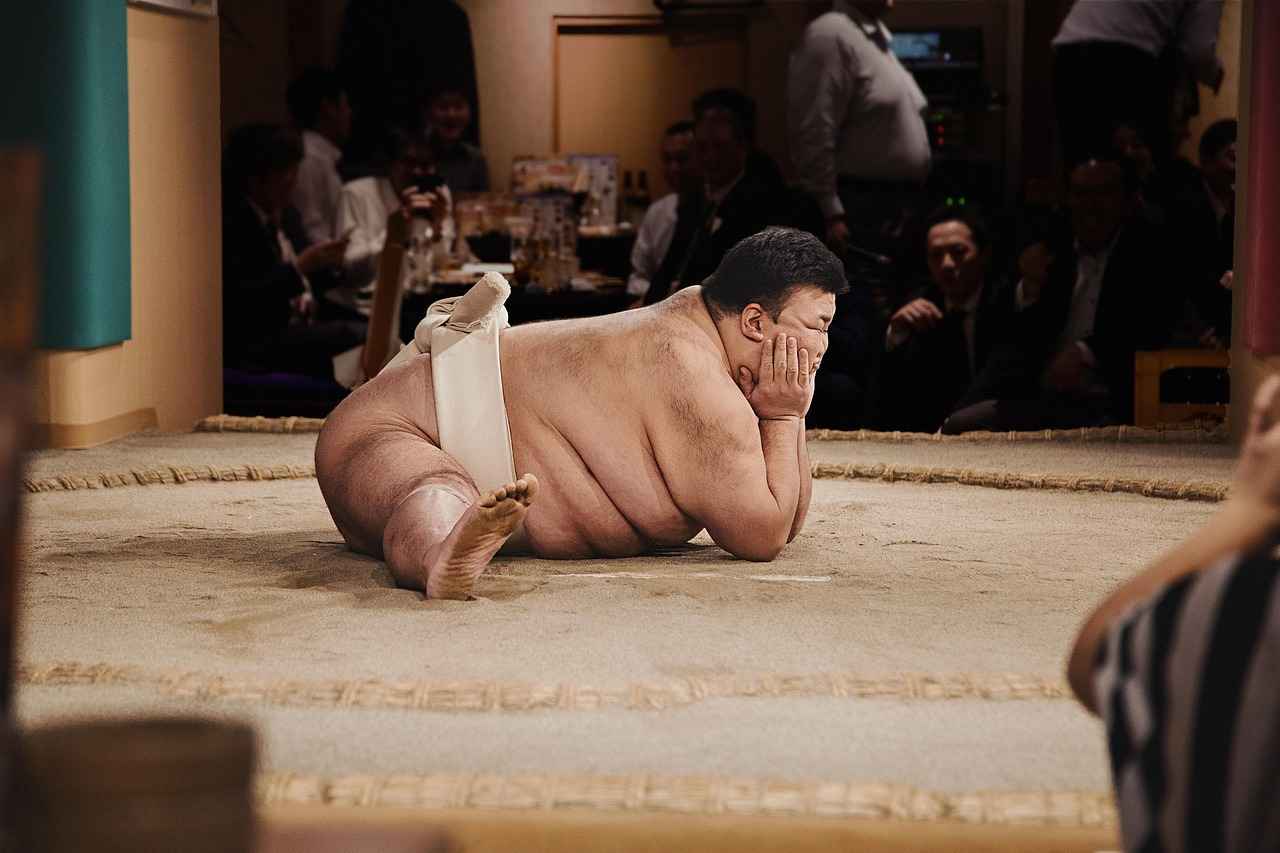This article explores the advantages and disadvantages of fat tire electric bikes, focusing on their performance across various terrains. Discover how they can enhance your riding experience and their suitability for different environments.
What are Fat Tire Electric Bikes?
Fat tire electric bikes are specially designed bicycles equipped with wide tires and electric motors. These bikes offer enhanced stability and traction, making them ideal for diverse terrains, from sandy beaches to snowy trails.
Advantages of Fat Tire Electric Bikes
- Improved Stability: Fat tires provide superior balance and control on rough terrains, allowing riders to navigate obstacles with confidence.
- Enhanced Traction: The broader surface area of fat tires increases grip, making it easier to ride on loose surfaces like sand, mud, or snow.
- Comfortable Riding Experience: The cushioning effect of fat tires absorbs shocks from bumps and rough surfaces, ensuring a smoother ride.
- Electric Assistance: The electric motor offers pedal assistance, making it easier to tackle steep hills and challenging landscapes.
Disadvantages of Fat Tire Electric Bikes
- Weight Considerations: These bikes tend to be heavier than traditional bicycles, which can affect maneuverability.
- Cost Implications: The price of fat tire electric bikes can be higher due to their specialized design and electric features.
Best Terrains for Fat Tire Electric Bikes
- Snowy Trails: Fat tire bikes excel in snowy conditions, providing necessary grip and stability.
- Sandy Beaches: The wide tires enable smooth rides on sandy beaches, making them popular among beachgoers.
Maintenance Tips for Fat Tire Electric Bikes
- Regular Tire Inspection: Check tire pressure and tread regularly for optimal performance.
- Battery Care: Proper charging and storage are essential for extending battery life.
Conclusion: Are Fat Tire Electric Bikes Right for You?
In conclusion, fat tire electric bikes offer unique advantages along with some drawbacks. Evaluating your riding preferences, terrain types, and budget will help determine if this bike style is the best fit for your cycling adventures.

What are Fat Tire Electric Bikes?
Fat tire electric bikes are an innovative and versatile mode of transportation that has gained popularity among cycling enthusiasts and outdoor adventurers alike. These bicycles are equipped with wider tires and powerful electric motors, designed specifically to enhance performance across a range of terrains. This article delves into the characteristics of fat tire electric bikes, their advantages, and the terrains where they excel.
Fat tire electric bikes are uniquely engineered bicycles that feature extra-wide tires and integrated electric motors. The design of these bikes allows for superior stability and traction, making them suitable for various terrains, from sandy beaches to snowy trails. The combination of fat tires and electric assistance makes them an excellent choice for riders looking to explore off-road paths or tackle challenging conditions with ease.
- Stability on Uneven Surfaces: The wide tires provide enhanced balance, allowing riders to navigate rocky or bumpy trails with confidence.
- Improved Traction: Fat tires grip the ground better, making it easier to ride on loose surfaces like mud, sand, or snow.
- Comfortable Riding Experience: The added cushioning from fat tires absorbs shocks, leading to a smoother ride over rough terrains.
- Electric Assistance: The electric motor offers pedal assistance, making it easier for riders to conquer steep hills and challenging landscapes.
Fat tire electric bikes shine in various environments, allowing riders to enjoy unique experiences:
- Snowy Trails: The superior grip of fat tires makes riding in snow not only possible but enjoyable, opening up winter landscapes for exploration.
- Sandy Beaches: Fat bikes glide smoothly over sand, providing beachgoers with a fun way to explore coastal paths without getting stuck.
In summary, fat tire electric bikes offer a range of benefits that cater to diverse riding preferences and terrains. Their ability to provide stability and comfort on challenging surfaces makes them a popular choice for outdoor adventures. Whether you’re navigating snowy trails or cruising along sandy beaches, fat tire electric bikes are designed to enhance your riding experience.

Advantages of Fat Tire Electric Bikes
Fat tire electric bikes have gained popularity for their unique design and performance capabilities. These bikes are equipped with wide, robust tires and electric motors, allowing them to excel in various environments. Below, we delve into the key advantages of fat tire electric bikes, highlighting how they enhance the riding experience across different terrains.
- Improved Stability: The wide tires of fat tire bikes provide a larger contact area with the ground, resulting in enhanced stability on uneven surfaces. This feature is particularly beneficial when navigating rocky paths or bumpy trails, allowing riders to maintain better control.
- Enhanced Traction: Fat tires are designed to grip the surface effectively, making them ideal for challenging terrains like sand, mud, or snow. The increased traction enables riders to tackle these surfaces with confidence, minimizing the chances of slipping or getting stuck.
- Comfortable Ride: The larger volume of air in fat tires offers a natural cushioning effect. This shock absorption helps to smooth out bumps and rough patches, providing a more comfortable ride, especially on long-distance journeys or for those with physical limitations.
- Electric Assistance: The integrated electric motor provides pedal assistance, making it easier to conquer steep hills and challenging landscapes. This feature allows riders of varying fitness levels to enjoy outdoor adventures without the fear of exhaustion, making cycling more accessible.
- Versatility: Fat tire electric bikes are incredibly versatile, suitable for a range of terrains from snowy trails to sandy beaches. This adaptability makes them a great choice for riders who enjoy exploring different environments.
In summary, fat tire electric bikes offer a multitude of benefits that enhance the riding experience, making them a favored choice among adventure seekers and casual riders alike. Their ability to provide stability, traction, and comfort across various terrains ensures that riders can enjoy a controlled and enjoyable experience, regardless of the conditions.
Stability on Uneven Surfaces
is a critical aspect of fat tire electric bikes, making them a popular choice for adventurous riders. The unique design of fat tires, which are significantly wider than standard bicycle tires, plays a vital role in providing superior balance and control on rough and uneven terrains. This enhanced stability allows riders to confidently navigate various obstacles, such as rocks, tree roots, and deep ruts, that are commonly found in off-road environments.
One of the standout features of fat tire electric bikes is their ability to distribute weight evenly across a larger surface area. This characteristic not only improves grip but also minimizes the risk of slipping, especially in challenging conditions like mud, sand, or snow. Riders can tackle steep inclines or declines without the fear of losing control, making their overall experience safer and more enjoyable.
| Advantages of Fat Tires on Uneven Surfaces | Details |
|---|---|
| Improved Traction | The wider tires provide better contact with the ground, enhancing grip and stability. |
| Shock Absorption | Fat tires absorb shocks effectively, reducing the impact of bumps and rough patches. |
| Confidence Boost | Riders feel more secure navigating obstacles, which encourages exploration of new terrains. |
Moreover, the added stability from fat tires significantly reduces the likelihood of accidents. Riders can maintain their balance even when encountering unexpected challenges, which is especially important for those new to cycling or those who may not have extensive experience with off-road biking. This stability is a game-changer for individuals looking to explore rugged landscapes without the constant worry of falling or losing control.
In conclusion, fat tire electric bikes excel in providing stability on uneven surfaces, making them an excellent choice for riders seeking adventure. The combination of wider tires and electric assistance ensures a smooth and safe ride, allowing enthusiasts to fully enjoy their outdoor experiences.
Enhanced Traction in Challenging Conditions
The performance of fat tire electric bikes is significantly influenced by their unique design, particularly in challenging terrains. The wider surface area of fat tires plays a crucial role in enhancing grip, making it easier to navigate through loose and unpredictable surfaces such as sand, mud, and snow. This feature is especially advantageous for riders who thrive on adventure and seek to explore off-road trails.
When riding on loose surfaces, the increased contact area of fat tires allows for better weight distribution. This means that instead of sinking into the sand or slipping in the mud, riders can maintain control and stability. For those who enjoy winter sports, fat tires provide the necessary traction to ride safely on snowy trails, where traditional bike tires would struggle.
Furthermore, the design of fat tires not only enhances grip but also contributes to a more comfortable riding experience. The added cushioning effect absorbs shocks from uneven terrain, reducing fatigue and enabling longer rides without discomfort. For adventurous souls, this means the ability to explore various landscapes without the constant worry of losing traction or control.
- Benefits of Enhanced Traction:
- Improved stability on uneven surfaces
- Increased confidence while navigating obstacles
- Ability to tackle diverse terrains without fear of slipping
In conclusion, the enhanced traction provided by fat tires is a game changer for riders looking to conquer challenging conditions. Whether you are traversing through sandy beaches, muddy trails, or snowy paths, fat tire electric bikes offer the performance and reliability needed for a thrilling off-road experience. Embrace the adventure and enjoy the ride!
Comfortable Riding Experience
One of the most significant advantages of fat tire electric bikes is their exceptional comfort during rides. The design of these bikes, featuring wide tires, plays a crucial role in providing a smooth and enjoyable cycling experience. The cushioning effect of the fat tires effectively absorbs shocks and vibrations caused by bumps and uneven surfaces, making them ideal for various terrains.
This comfort is particularly beneficial for long-distance rides, where endurance and ease of handling become paramount. Riders can traverse challenging landscapes without the discomfort often associated with traditional bikes. Furthermore, individuals with physical limitations or those recovering from injuries will find the cushioned ride less taxing on their bodies, allowing for a more enjoyable experience.
Fat tires enhance the bike’s ability to glide over obstacles, such as rocks or tree roots, which are commonly found on off-road trails. This feature not only improves the overall riding experience but also boosts confidence in navigating through rugged terrains. Riders can focus more on enjoying the scenery rather than worrying about potential discomfort or injuries from jarring impacts.
Additionally, the wider tire surface provides better grip and stability, further contributing to a comfortable ride. This is especially important for those who may be new to biking or are not as experienced in handling traditional bicycles. The increased stability allows for a more controlled ride, reducing the likelihood of accidents and enhancing safety.
In conclusion, the offered by fat tire electric bikes makes them a popular choice among various riders. Whether you’re a seasoned cyclist or a casual rider, the benefits of a smoother ride cannot be overstated. This feature, combined with the bike’s versatility across different terrains, makes fat tire electric bikes a worthy investment for anyone looking to enhance their cycling adventures.
Electric Assistance for Challenging Terrains
The integration of an electric motor in fat tire bikes revolutionizes the cycling experience, particularly when navigating challenging terrains. This technology provides pedal assistance, enabling riders to conquer steep hills and rugged landscapes with ease. Whether you are an experienced cyclist or a beginner, this feature makes outdoor adventures accessible and enjoyable.
One of the primary advantages of electric assistance is the ability to adjust the level of support based on the rider’s needs. Riders can select different modes, allowing them to customize their experience. For instance, when tackling a steep incline, the motor can provide a significant boost, reducing the physical strain typically associated with climbing hills. This adaptability is especially beneficial for those who may not be in peak physical condition, as it allows them to participate in outdoor activities without the fear of exhaustion.
Moreover, electric fat tire bikes facilitate exploration of varied terrains that may have been previously daunting. From rocky trails to muddy paths, the combination of wide tires and electric power enhances stability and control. Riders can confidently traverse challenging landscapes, enjoying the thrill of adventure without the associated fatigue.
Additionally, electric assistance can extend the distance a rider can cover in a single outing. With the ability to tackle tougher terrains more efficiently, cyclists can venture further into nature, discovering hidden gems that are often overlooked. This feature not only enhances the riding experience but also encourages a greater connection with the outdoors.
In summary, the electric motor in fat tire bikes significantly enhances the riding experience across challenging terrains. It allows riders of all fitness levels to enjoy the outdoors, making cycling a more inclusive and enjoyable activity.

Disadvantages of Fat Tire Electric Bikes
While fat tire electric bikes offer numerous benefits, it is essential for potential buyers to understand their limitations. Recognizing these drawbacks can aid in making an informed purchasing decision.
- Weight Considerations: One of the primary disadvantages of fat tire electric bikes is their weight. Due to their robust construction and the inclusion of electric components, these bikes tend to be heavier than traditional bicycles. This added weight can make them less maneuverable and more challenging to transport, especially for those who may need to lift or carry their bike frequently.
- Cost Implications: Fat tire electric bikes often come with a higher price tag compared to standard models. The specialized design and electric features contribute to this increased cost, which can be a significant factor for budget-conscious buyers. It’s important to consider whether the benefits justify the investment.
- Limited Range: Depending on the battery capacity and usage, some fat tire electric bikes may have a limited range. Riders who plan to take long-distance trips should be aware of the bike’s battery life and charging options to avoid getting stranded.
- Maintenance Requirements: Like any electric vehicle, fat tire electric bikes require regular maintenance. This includes checking the electric components, battery health, and tire condition. For some users, this can be a daunting task that requires time and knowledge.
- Terrain Limitations: Although fat tire bikes excel in various terrains, they may not perform as well on paved roads compared to traditional road bikes. Riders who frequently ride on smooth surfaces may find the wider tires less efficient, leading to a slower ride.
In conclusion, understanding the disadvantages of fat tire electric bikes is crucial for potential buyers. By weighing these factors against their benefits, individuals can make a more informed decision about whether this type of bike suits their needs and lifestyle.
Weight Considerations
When it comes to fat tire electric bikes, one of the most significant factors to consider is their weight. These bikes are generally heavier than traditional bicycles, primarily due to their robust construction and the inclusion of electric components such as motors and batteries. This added weight can have several implications for riders.
- Maneuverability: The increased weight can make fat tire electric bikes less maneuverable compared to lighter models. Riders may find it more challenging to navigate tight corners or perform quick turns, particularly in urban environments.
- Transporting the Bike: For those who need to transport their bikes, the added weight can pose a challenge. Lifting and loading these bikes onto vehicle racks or carrying them up stairs can be cumbersome, especially for individuals who may not have significant upper body strength.
- Rider Fatigue: While the electric motor assists with pedaling, the overall weight can still contribute to rider fatigue, particularly during longer rides or when tackling steep inclines. Riders may need to exert more effort to maintain control and balance.
Despite these challenges, the benefits of fat tire electric bikes often outweigh the downsides. Their stability and traction on various terrains can enhance the riding experience, making them a popular choice for adventure enthusiasts. Riders should weigh the pros and cons based on their specific needs and riding conditions.
In summary, while the weight of fat tire electric bikes can present some challenges, understanding these factors can help potential buyers make informed decisions. It’s essential to consider how the weight will impact your riding style, transport needs, and overall enjoyment of the bike.
Cost Implications
The price of fat tire electric bikes can often be higher than that of standard models, and there are several reasons for this difference. These bikes are specifically designed with unique features that cater to a variety of terrains, which adds to their overall cost. Below, we explore the factors contributing to the higher price tag of fat tire electric bikes.
- Specialized Design: Fat tire electric bikes are built with wider tires that provide enhanced stability and traction. This specialized design requires more materials and advanced engineering, which can increase production costs.
- Electric Components: The inclusion of electric motors and batteries significantly raises the cost. These components are essential for the bike’s performance, especially when tackling steep hills or rough terrains.
- Durability and Quality: Manufacturers often use high-quality materials to ensure that fat tire electric bikes can withstand harsh conditions. This focus on durability can lead to higher prices compared to standard bikes.
- Research and Development: The innovation involved in creating effective electric bikes involves substantial research and development efforts. These costs are typically reflected in the retail price.
For budget-conscious buyers, the higher price of fat tire electric bikes can be a significant consideration. It’s essential to evaluate your needs and riding habits before making a purchase. While the initial investment may be substantial, the long-term benefits of enhanced performance and durability can justify the cost for many riders.
In conclusion, understanding the cost implications of fat tire electric bikes helps potential buyers make informed decisions. While they may come with a higher price tag, the value they offer in terms of performance and versatility can make them a worthwhile investment for avid cyclists.

Best Terrains for Fat Tire Electric Bikes
Fat tire electric bikes are designed to thrive in a variety of terrains, making them a versatile choice for outdoor enthusiasts. By understanding the best environments for these bikes, riders can enhance their adventures while avoiding potential challenges.
- Snowy Trails: Fat tire electric bikes excel in snowy conditions, providing excellent grip and stability. The wide tires prevent sinking into the snow, allowing riders to traverse winter landscapes with ease. This capability is essential for those who enjoy winter sports or simply want to explore snowy trails.
- Sandy Beaches: Riding on sandy beaches can be challenging, but fat tire bikes are built for this. Their broad tires distribute weight evenly, making it easier to ride on loose sand without getting stuck. This feature is particularly appealing to beachgoers looking to enjoy the coastal scenery.
- Rocky and Uneven Terrain: The robust design of fat tire electric bikes allows them to handle rocky paths and uneven surfaces. The increased traction helps riders navigate obstacles with confidence, making them ideal for mountain biking or trail riding.
- Muddy Trails: When it rains, many trails become muddy and slippery. Fat tire bikes are equipped to handle these conditions, providing the necessary grip to keep riders safe and in control. Their ability to traverse muddy paths opens up new riding opportunities.
- Urban Environments: While designed for off-road adventures, fat tire electric bikes also perform well in urban settings. The stability and comfort they offer make them a great option for commuting or leisurely rides through city parks.
Understanding these terrains is crucial for maximizing the potential of fat tire electric bikes. Whether you’re tackling snowy trails or cruising along sandy beaches, these bikes provide a unique riding experience that caters to various environments.
Conclusion: Fat tire electric bikes are not just for off-road enthusiasts; they are versatile machines that can handle a range of terrains. By choosing the right environment, riders can fully enjoy the benefits these bikes offer, ensuring every ride is an adventure.
Snowy Trails and Winter Riding
present a unique opportunity for adventure enthusiasts to explore winter landscapes in ways that traditional bikes cannot. Among the most effective tools for navigating these conditions are fat tire bikes, which are specifically designed to tackle the challenges posed by snow and ice.
Fat tire bikes feature wider tires that provide an increased surface area, allowing for better grip on slippery surfaces. This design is crucial when riding on snow, as it helps to prevent the bike from sinking and getting stuck. The extra traction offered by fat tires enables riders to maintain control, even on challenging terrains.
Moreover, the stability provided by fat tire bikes enhances rider confidence. As winter landscapes can be unpredictable, having a bike that can handle various snow depths and icy patches is essential. Riders can explore remote trails and scenic routes that would typically be inaccessible during the winter months.
| Advantages of Fat Tire Bikes in Snow | Description |
|---|---|
| Increased Traction | Wider tires grip the snow better, reducing the chances of slipping. |
| Enhanced Stability | Fat tires provide a solid balance on uneven snowy surfaces. |
| Versatile Usage | Can be used on various terrains, including snow, sand, and mud. |
Additionally, fat tire bikes allow riders to experience the beauty of winter in a way that is both exhilarating and safe. Whether it’s cruising through a snow-covered forest or tackling snowy hills, these bikes open up a world of possibilities for winter sports enthusiasts.
In conclusion, if you are looking to explore snowy trails, investing in a fat tire bike is a decision that can significantly enhance your winter riding experience. With their superior grip and stability, they make winter adventures not only possible but also enjoyable.
Sandy Beaches and Coastal Paths
When it comes to exploring sandy beaches and coastal paths, fat tire electric bikes have emerged as a popular choice among adventure seekers and beachgoers alike. Their unique design, characterized by wide tires, enables smooth rides over soft sand, allowing riders to fully immerse themselves in the breathtaking coastal scenery.
The ability of fat bikes to glide effortlessly over sandy surfaces is attributed to their increased surface area. This feature distributes the rider’s weight more evenly, preventing the bike from sinking into the sand. As a result, riders can traverse beaches with ease, enjoying the sun, surf, and stunning views without the fear of getting stuck.
Moreover, fat tire bikes are not only suitable for sandy terrains but also excel on coastal paths. These paths often feature a mix of hard-packed sand, rocky sections, and occasional muddy spots. The enhanced traction provided by fat tires allows riders to navigate these diverse conditions confidently, making the ride both enjoyable and safe.
For those who love to explore, fat tire electric bikes also offer the added benefit of electric assistance. This feature makes it easier to tackle hills or longer distances along the coast without feeling exhausted. Riders can enjoy the thrill of adventure without worrying about their physical limitations.
In conclusion, fat tire electric bikes are an excellent choice for anyone looking to explore sandy beaches and coastal paths. Their unique design and electric capabilities provide a comfortable and enjoyable riding experience, making them a must-have for beach enthusiasts. Whether you’re cruising along the shoreline or exploring hidden coastal trails, these bikes promise an unforgettable adventure.

Maintenance Tips for Fat Tire Electric Bikes
Maintaining your fat tire electric bike is crucial for ensuring its longevity and optimal performance. Regular care not only enhances the riding experience but also prevents potential issues that can arise from neglect. Here are some essential maintenance tips to keep your bike in top shape:
- Regular Tire Inspection: It’s important to check the tire pressure and tread depth frequently. Proper inflation is crucial for maximizing traction, especially on varied terrains. Low tire pressure can lead to increased wear and reduced performance, so make it a habit to inspect your tires before each ride.
- Battery Care and Management: The battery is the heart of your electric bike. Ensure you follow the manufacturer’s guidelines for charging and storage. Avoid letting the battery drain completely, and store it in a cool, dry place to extend its lifespan. Regularly check for any signs of wear or damage.
- Frame Cleaning: Keeping the bike frame clean not only maintains its aesthetic appeal but also prevents corrosion and wear. Use a gentle soap and water solution, and avoid high-pressure washers that can damage components.
- Brake System Check: Regularly inspect the brakes for wear and ensure they are functioning properly. Replace brake pads as needed and adjust the brake cables to maintain optimal stopping power.
- Chain Maintenance: A well-lubricated chain is essential for smooth operation. Clean the chain regularly and apply appropriate lubricant to reduce friction and wear.
By following these maintenance tips, you can ensure that your fat tire electric bike remains in excellent condition, providing you with countless hours of enjoyable riding. Regular upkeep will help you maximize your investment and enjoy the versatility that these bikes offer across different terrains.
Regular Tire Inspection
is a critical aspect of maintaining the performance and safety of your fat tire electric bike. Ensuring that your tires are in optimal condition not only enhances your riding experience but also significantly reduces the risk of accidents. Here, we will explore the importance of tire pressure and tread depth, providing practical tips to keep your bike in top shape.
Why Tire Pressure Matters
Maintaining proper tire pressure is essential for achieving maximum traction and ride quality. Under-inflated tires can lead to increased rolling resistance, making it harder to pedal, especially on varied terrains. Conversely, over-inflated tires can compromise grip and comfort, making your ride less enjoyable. Regularly checking and adjusting your tire pressure according to the manufacturer’s recommendations can significantly improve your bike’s performance.
Understanding Tread Depth
The tread on your tires plays a vital role in providing grip on different surfaces. Regularly inspecting the tread depth helps ensure that your tires can effectively channel water and maintain traction, particularly in wet or slippery conditions. If the tread is worn down, it may be time to replace your tires to maintain safety and performance.
Tips for Regular Tire Inspections
- Check tire pressure before every ride using a reliable pressure gauge.
- Inspect the tread visually for signs of wear or damage.
- Look for any punctures or foreign objects embedded in the tire.
- Rotate tires regularly to promote even wear.
Conclusion
In conclusion, is an essential practice for all fat tire electric bike owners. By ensuring that your tires are properly inflated and have adequate tread depth, you can enhance your bike’s performance and safety. Make tire inspections a routine part of your maintenance schedule to enjoy a smoother and safer ride.
Battery Care and Management
is a crucial aspect of maintaining the functionality and longevity of electric bikes, particularly fat tire electric bikes. As these bikes are equipped with electric motors, understanding how to care for the battery can significantly enhance the overall riding experience.
To ensure optimal performance, it’s essential to adopt proper charging practices. Always use the charger that comes with your bike, as using third-party chargers can lead to irreversible damage to the battery. It’s advisable to charge the battery after every ride or when it reaches a low charge level, ideally between 20% to 80%. This practice helps in maintaining the battery’s health and prolonging its lifespan.
Additionally, storage conditions play a vital role in battery management. When not in use, store the battery in a cool, dry place, away from direct sunlight or extreme temperatures. Ideally, the storage temperature should be between 32°F (0°C) and 77°F (25°C). Storing the battery at extreme temperatures can lead to capacity loss and decrease its overall efficiency.
Regularly checking the battery’s terminals for corrosion and ensuring they are clean can also help maintain a good connection and prevent performance issues. If you notice any signs of corrosion, gently clean the terminals with a soft cloth.
Lastly, consider implementing a battery management system (BMS) if your bike does not already include one. A BMS can monitor the battery’s health, prevent overcharging, and ensure safe operation. By following these guidelines, you can significantly extend the life of your electric bike’s battery, ensuring reliable performance during your rides.
| Tip | Description |
|---|---|
| Charging Practices | Charge after every ride, keep between 20%-80% charge. |
| Storage Conditions | Store in a cool, dry place, ideally between 32°F and 77°F. |
| Terminal Maintenance | Regularly clean battery terminals to prevent corrosion. |
| Battery Management System | Use a BMS to monitor battery health and prevent overcharging. |
By implementing these effective battery care practices, riders can enjoy their fat tire electric bikes for many years, enhancing their adventures across various terrains.

Conclusion: Are Fat Tire Electric Bikes Right for You?
In the world of cycling, fat tire electric bikes present a unique blend of advantages and challenges that cater to a variety of riders. These bikes are designed to tackle diverse terrains, making them a popular choice for outdoor enthusiasts. However, whether they are the right fit for you depends on several factors, including your riding style, the types of terrain you plan to conquer, and your budgetary considerations.
One of the most significant advantages of fat tire electric bikes is their ability to provide stability and traction on uneven surfaces. The wider tires are specifically engineered to grip loose terrain, whether it’s sand, mud, or snow. This characteristic makes them particularly appealing for riders who enjoy off-road adventures or live in areas with challenging weather conditions.
Moreover, the electric assistance feature allows riders of all fitness levels to enjoy cycling without the fear of exhaustion, especially on steep hills. This means that even those who may not be in peak physical condition can experience the thrill of outdoor cycling.
However, it’s essential to consider the drawbacks as well. Fat tire electric bikes tend to be heavier than traditional bikes, which can affect their maneuverability and transportability. Additionally, the cost of these bikes can be higher due to their specialized design and electric components, making them a consideration for budget-conscious consumers.
Ultimately, the decision to invest in a fat tire electric bike should be based on a careful evaluation of your personal preferences, the terrain you plan to ride on, and your financial situation. By weighing these factors, you can determine if this bike style aligns with your cycling adventures and lifestyle.
Frequently Asked Questions
- What terrains are fat tire electric bikes best suited for?
Fat tire electric bikes shine on sandy beaches, snowy trails, and rough terrains. Their wide tires provide excellent stability and traction, making them perfect for adventurous rides in challenging conditions.
- Are fat tire electric bikes heavy?
Yes, they tend to be heavier than traditional bikes due to their robust construction and electric components. This added weight can affect maneuverability, especially when transporting them.
- How do I maintain my fat tire electric bike?
Regular maintenance is key! Make sure to inspect the tires for pressure and tread, and take care of the battery by following proper charging practices. These steps will help ensure your bike stays in top condition for longer rides.
- Can anyone ride a fat tire electric bike?
Absolutely! The electric assistance makes it easier for riders of all fitness levels to enjoy biking, especially on steep hills or challenging landscapes. It’s all about having fun outdoors without getting exhausted!
- Are fat tire electric bikes expensive?
They can be pricier than standard bikes, primarily due to their specialized design and electric features. However, the investment can be worth it for those who want a versatile bike for various terrains.














